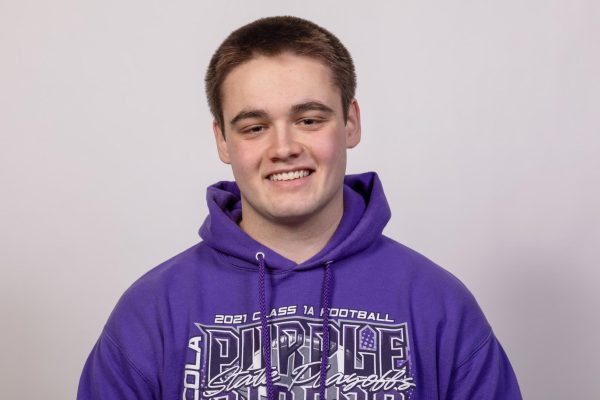Column: Access, support for disabled people is a right
October 17, 2016
Able-bodied people often take for granted the ease of access we have to buildings, jobs and healthcare. The other day, I spoke to a former employee of Eastern who had to cart around computers and therefore knew all of the wheelchair entrances on campus. It had not even occurred to me at that point that there may not be much access to the university for students who need accommodations to reach their classes .
Of course it had not occurred to me; I am an able-bodied student who can use the entrances with stairs to them. I have never had to worry about supporting myself (more than any other college student with a part-time job) and I live most of my life without daily fear. While disabled people are not any lesser for their disabilities, there is not a whole lot of support for them, comparatively speaking.
Certain accommodations , like wheelchair ramps and entrances, affordable living and healthcare and truly reliable sources of income, are lacking in even the most progressive of spaces. Even if it means making someone else comfortable and safe, even if it comes to little cost to anyone, even if it means making a system overall better for most people, we do not want to do the work to make that happen, because putting effort into anything is too much to ask for most people, especially when they do not feel the repercussions of not contributing.
Disabled people are also much more likely than others to suffer abuse because of their status, a little-known fact that contributes to the invisibility and mistreatment of disabled people. There are organizations out there trying to prevent this abuse, but it is still a commonplace issue among disabled people. It is not limited to just stealing pain pills for recreational use or illegal resale, either. It is also domestic abuse, sexual assault and general neglect. People who have caretakers are especially vulnerable, as the inability to be independent leaves plenty of opportunity for abuse.
Of course, there are systems in place to make sure that disabled people have a base income, but people often fall through the cracks or find themselves swarmed by debt, needing more than they are offered per month to support themselves. Can they turn to other methods of making revenue, like asking for charity? Sure, but then there are the annoying people who shame the disabled for crowd-funding to potentially save their lives.
Churches have been collecting money every Sunday for generations and no one bats an eyelash. Scientology became a fund-motivated, tax-free religion through bullying alone and no one is outraged. A teenager who asks for some money to get a life-saving operation, though? Prepare for the inevitable backlash of verbal abuse, brought proudly to you by losers who have nothing better to do with their days than to try and debunk their crowd-funding posts, often the same losers who willingly supported a guy who said he would make and eat noodles if enough people funded him.
The fact that we have a presidential candidate that has openly mocked a reporter with cerebral palsy and not faced any consequences for it makes it plain that we treat disabled people like they are sub-human. I should not even have to say this, but that needs to stop. Disabled people deserve their dignity and agency just as much as any other human, and the fact that we purposefully dodge and ignore so many issues that the disabled community faces is disgusting. Nothing is going to be done about it if we do not start talking about it.
Gretchen Neal is a senior English major. She can be reached at 581-2812 or [email protected].














































